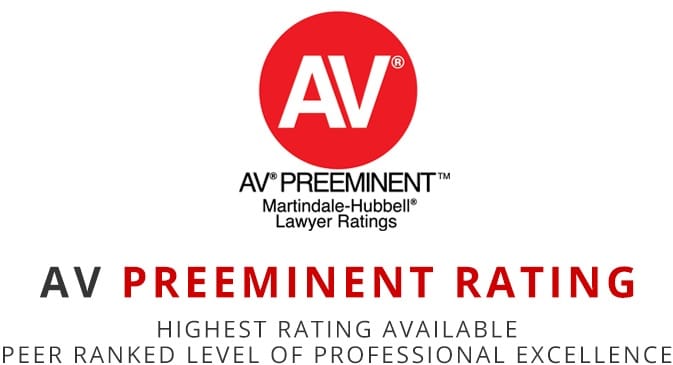Collaborative Divorce Attorneys
If you and your spouse have made the difficult decision to end your marriage, you also need to decide how to do so. As an alternative to the traditional method of divorcing through court litigation, you may wish to consider Collaborative Divorce, which was adopted in North Carolina by the General Assembly in 2003. Procedures for Collaborative Divorce are codified in N.C. Gen. Stat. §§ 50-70 - 50-79. You and your spouse may agree on many of the issues that need to be resolved, such as child custody and support, co-parenting, property division and other financial matters. Collaborative Divorce Attorneys offers a way for you to end your marriage and resolve your marital issues without the acrimony and hard feelings that may result from litigation and allowing a judge with limited information to make those decisions for you.
Collaborative Divorce allows you and your spouse to work together with your trained Collaborative Divorce attorneys to resolve your marital issues as a team and allows you to focus on your common and individual needs and goals. The result of a Collaborative Divorce may be an agreement or a Consent Order entered in an agreed upon court action. This process allows couples to maintain mutual respect through the negotiation process with the least potential impact on their children. The use of Collaborative Divorce Attorneys allows you and your spouse to have a larger voice in creating solutions that address the unique requirements and concerns of your family. Hopefully, this cooperative approach will continue as you work together to meet the needs of your children in the years ahead.
Although Collaborative Divorce is sometimes likened to the Mediation process, it differs in several ways. Mediation is an alternative dispute resolution method where a neutral third party mediator guides you and your spouse through the child-related, property and financial issues you are facing in order to reach a mutually acceptable agreement. Mediation may result in an Agreement or in a Consent Order. If the mediation is court-ordered, the mediator will draft a Memorandum of Understanding that can be presented to the Court for approval. Please see Mediation in the Course of Divorce for more information about this method of obtaining a divorce.
Collaborative Divorce contains elements of both traditional divorce, with each party represented by an attorney, and mediation, with the parties negotiating toward an agreement. The first step is for you, your spouse and your respective Collaborative Divorce attorneys is to sign a Collaborative Family Law Agreement identifying the issues to be addressed and containing a commitment that the parties and attorneys will deal with each other in good faith to share information and documentation cooperatively, confidentially and completely. Such an Agreement provides that there will be no adversarial court intervention, that where appropriate the parties will jointly retain any necessary experts, such as therapists, accountants, appraisers and consultants, to assist them in resolving their issues, and that all attorneys and other professionals will withdraw their services if either party decides to litigate rather than continue to work towards a cooperative resolution of their marital issues. In the Collaborative Law process, both collaborative divorce attorneys will be disqualified from representing you and your spouse in any adversarial court proceeding related to your marital issues, so you will both need to secure different attorneys to proceed.
After the Collaborative Family Law Agreement is signed by all parties, meetings between you, your spouse and your attorneys will be held to make a plan for the exchange of information and documentation, to review that information and options for settlement and to negotiate a resolution of your marital issues. Other neutral professionals, such as child specialists, financial professionals and the like, may attend the meetings in order to review possible outcomes and offer solutions. Once all issues are resolved, the parties' agreement will be reduced to writing in the form of either a Separation Agreement in which the parties are bound by contract or a Consent Order, the terms of which will be entered in an uncontested Court proceeding and which may be enforced by the contempt powers of the Court.
Advantages of taking the Collaborative Divorce approach include:
Cost - Collaborative Divorce is generally less expensive with a more predictable cost than the traditional method of court litigation which includes court costs as well as attorneys’ fees.
Preservation of Relationship – Through mutual respect, open communication and cooperation, you and your spouse will more likely be able to co-parent cordially and harmoniously as you focus on the needs of your children. Agreements will work for both of you, rather than just one of you, creating a win-win scenario. If you or your spouse is a child of divorce, you may understand and wish to shield your children from the pain you may have felt from your own parents’ divorce.
Privacy and Control – You and your spouse can reach an agreement without the need for filing sensitive, personal documents which become a permanent public court record, and you retain control of your separation and divorce.
Better Outcome Potential – When a judge is required to settle the issues in your divorce, the result will be based on legal standards, rather than what will better fit your family’s needs. In the Collaborative Divorce process, your divorce may be obtained without the frequent anger and bitterness that accompanies a lengthy divorce process and trial. Most importantly, your children can observe their parents working together to resolve a difficult situation which provides a better foundation for future family dynamics.
Elaine Ashley and Michele Smith, two of the family law attorneys at Hill Evans Jordan & Beatty, are charter members of the Triad Family Law Collaborative Law Group. For more information on this group please visit www.triadcollaborative.com. They are trained in and have facilitated hundreds of divorces using Collaborative Law and mediation techniques. They can provide you with the support and guidance you need to reach the best possible resolution of your separation and divorce issues, while protecting your rights and ensuring your concerns are met through negotiation in a respectful and amicable setting.
Call 336-379-1390 to discuss the Collaborative Divorce process with our Collaborative Divorce Attorneys. We are here to help you resolve your divorce in the most respectful way possible.
RECENT FAMILY LAW RELATED POSTS
WE CAN HELP. GET STARTED HERE.
FIRM RECOGNITION


NC Super Lawyers

AV Preeminent Lawyers






